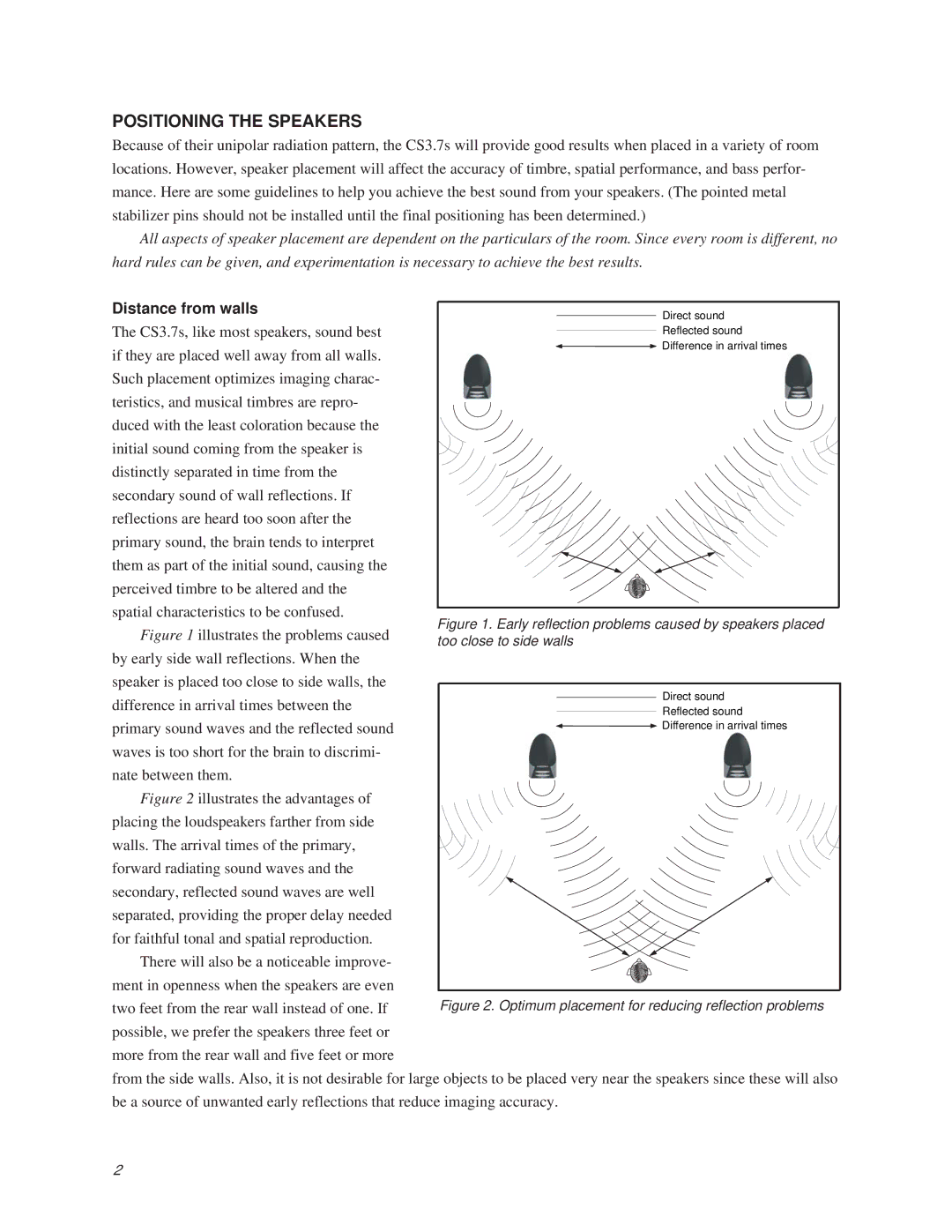CS3.7 specifications
Thiel Audio Products has long been synonymous with high-fidelity audio reproduction, and the CS3.7 loudspeakers stand as one of their crowning achievements. These speakers boast a unique combination of advanced technology and meticulous craftsmanship designed to offer listeners an unparalleled audio experience.One of the defining features of the CS3.7 is its innovative coaxial driver design, which consists of a 10-inch woofer and a 1-inch tweeter. This arrangement allows for excellent time alignment, ensuring that sound waves reach the listener's ears simultaneously, creating a more coherent and lifelike soundstage. The integration of both drivers into a single source reduces phase distortion and enhances imaging, making it possible for listeners to perceive details and nuances in the music that might be missed with traditional designs.
The cabinet of the CS3.7 is constructed from high-density fiberboard, which minimizes unwanted resonance and vibration, further enhancing sound clarity. Thiel employs a unique trapezoidal shape for the cabinet, which helps to reduce standing waves and acoustical coloration. The interior is carefully braced to provide structural integrity, thus allowing the speaker to perform optimally even at high volumes.
The CS3.7 speakers feature Thiel's renowned second-order crossover design, which ensures a smooth transition between the low and high frequencies. This technology results in a natural roll-off and a balanced sound signature across the frequency spectrum. Additionally, the speakers are capable of delivering a wide frequency response, making them suitable for a variety of music genres, from orchestral compositions to intricate jazz solos.
Another notable characteristic of the CS3.7 is its impressive sensitivity, making it easy to drive with a wide range of amplifiers. This flexibility is advantageous for audiophiles who prefer different types of amplification, whether it be tube-based or solid-state systems.
The aesthetic design of the CS3.7 does not compromise on elegance. With a sleek profile and various standard wood finishes, these speakers can seamlessly blend into any home décor while serving as eye-catching statement pieces.
Overall, Thiel Audio Products CS3.7 loudspeakers represent a harmonious balance of innovative technology, refined craftsmanship, and acoustic artistry. Whether one's passion is listening to classical symphonies or exploring contemporary soundscapes, the CS3.7 offers an immersive audio experience that is sure to satisfy even the most discerning listeners.

